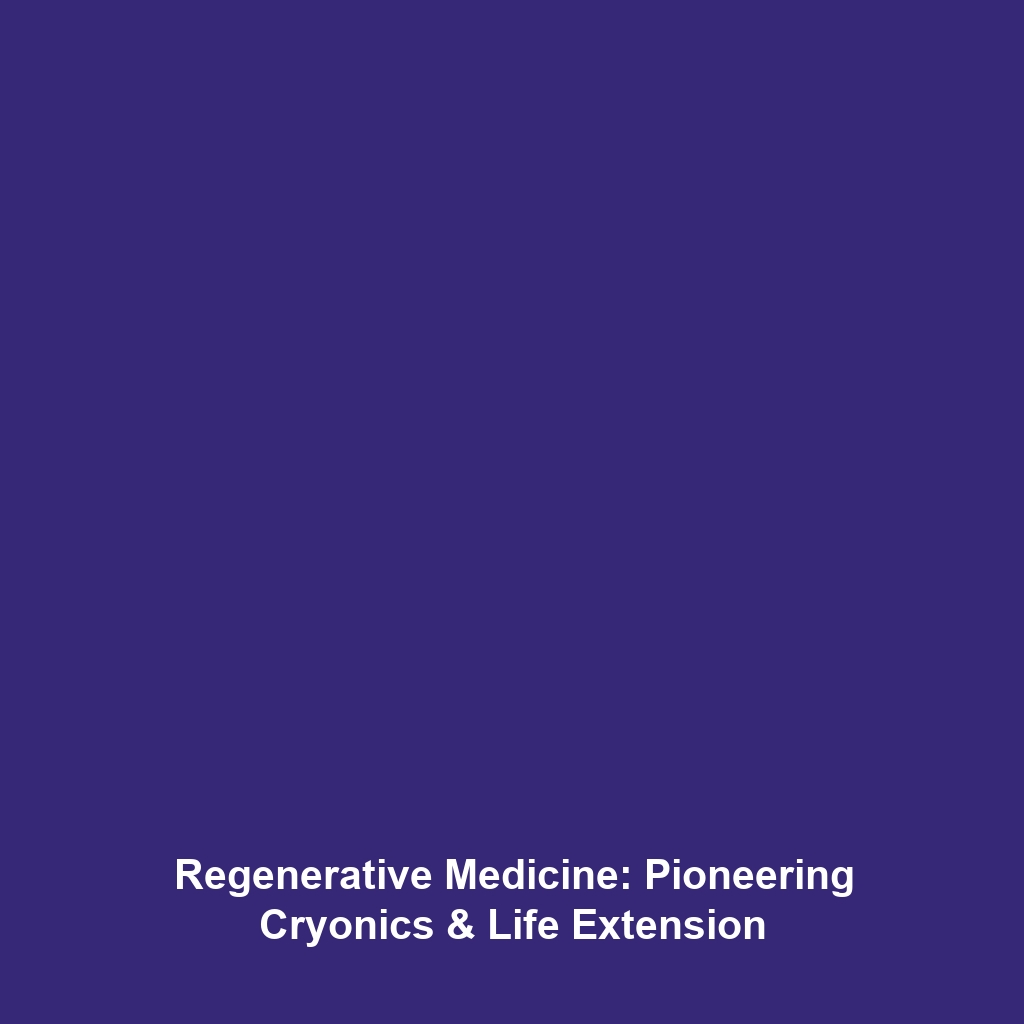Regenerative Medicine: A Catalyst for Cryonics & Life Extension
Regenerative Medicine is a groundbreaking field focused on repairing or replacing damaged cells, tissues, and organs, ultimately aiming to enhance longevity and quality of life. Within the broader context of Cryonics and Life Extension, it provides critical insights into how science can delay aging and even rejuvenate the body. As advancements in genetic engineering and stem cell research progress, the potential of regenerative techniques to transform life extension strategies plays a crucial role in the future of human health.
Key Concepts in Regenerative Medicine
Regenerative Medicine encompasses several core principles that enhance its significance within the domains of Cryonics and Life Extension:
- Stem Cell Therapy: Utilizes stem cells to regenerate damaged tissues, which can potentially counteract aging processes.
- Tissue Engineering: Involves creating biological substitutes to restore, maintain, or improve tissue functions.
- Genetic Engineering: Techniques such as CRISPR are being investigated for their potential to repair genetic defects and extend lifespan.
- Therapeutic Cloning: Cloning techniques that could aid in regenerating organs for transplantation.
Applications and Real-World Uses
Regenerative Medicine is already making waves in clinical applications. Here are some notable examples of how this domain is used in Cryonics and Life Extension:
- Stem Cell Treatments: Employed in treating conditions like Parkinson’s disease and spinal cord injuries, aiming for recovery and improved quality of life.
- Organ Regeneration: Research into bioengineering organs can potentially alleviate transplant shortages, prolonging life through enhanced health.
- Aging Research: Investigations into cellular rejuvenation techniques show promise for delaying age-related diseases.
Current Challenges in Regenerative Medicine
Despite its promise, there are significant challenges in studying and implementing Regenerative Medicine. Some of the key issues include:
- Ethical Concerns: The use of embryonic stem cells raises ethical issues and regulatory hurdles.
- Technical Limitations: Bioengineering functional tissues that integrate properly with host systems is still in development.
- Funding and Investment: Sufficient financial resources are needed to advance research and clinical trials.
Future Research and Innovations
The future of Regenerative Medicine looks bright with several innovations on the horizon. Ongoing research includes:
- 3D Bioprinting: This technology is set to revolutionize organ construction, potentially leading to customized organs for transplants.
- Gene Therapy Enhancements: Advanced techniques to manipulate genes may help in fighting genetic disorders and enhancing longevity.
- Nanotechnology: Utilizing nanoscale materials for drug delivery could enhance the precision of regenerative treatments.
Conclusion
In summary, Regenerative Medicine is not just a scientific pursuit but a potential gateway to new paradigms in Cryonics and Life Extension. As researchers continue to navigate its complexities and innovate groundbreaking solutions, the coupling of these fields represents one of the most promising avenues for human health and longevity. To learn more about our ongoing research and latest developments in these fields, explore our dedicated pages on Cryonics and Life Extension.
